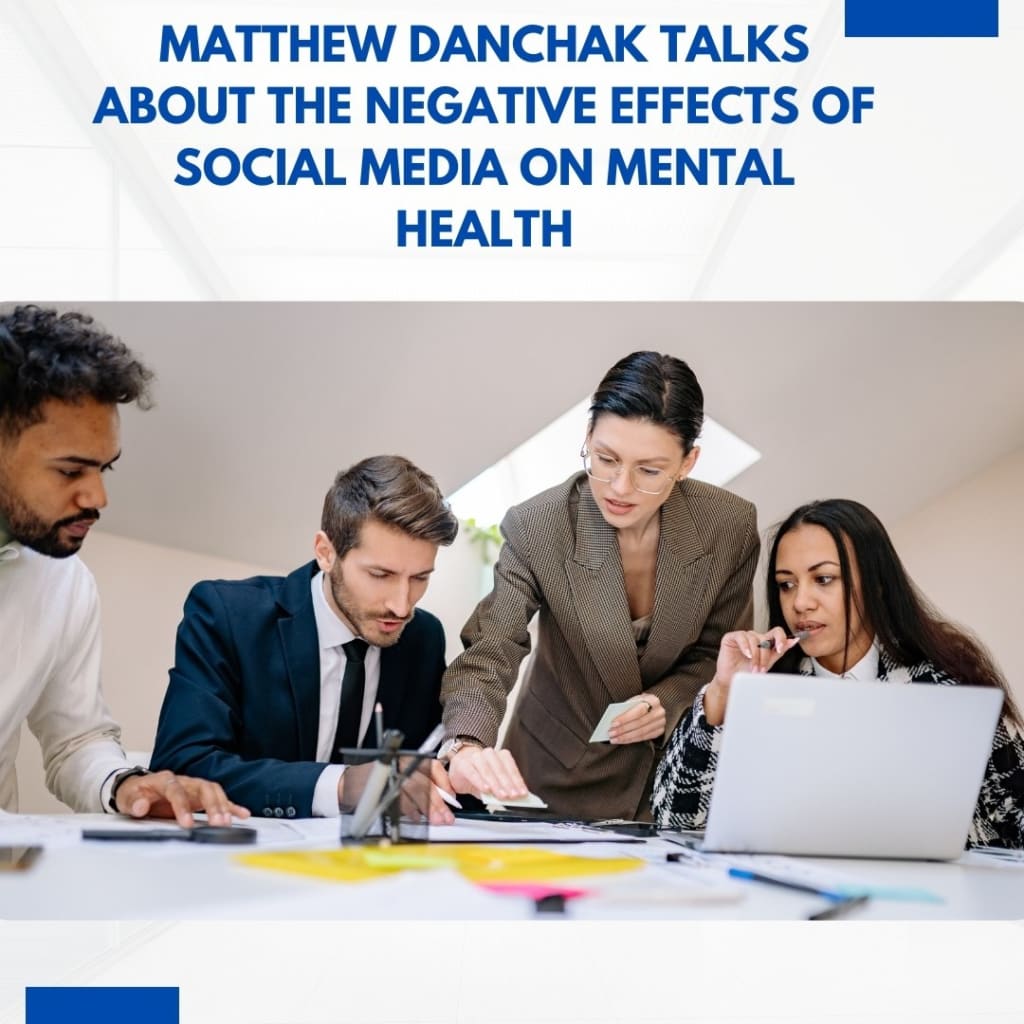Matthew Danchak Talks About the Negative Effects of Social Media on Mental Health
Matthew Danchak on Social Media's Effects

Social media has become an integral part of our lives, with billions of people worldwide using platforms like Facebook, Instagram, Twitter, and TikTok to connect, share, and stay updated. While social media offers many benefits, such as enabling communication and fostering community, it also has negative effects on mental health, as noted by mental health advocate Matthew Danchak.
Introduction to Social Media and Mental Health
Social media platforms are engineered to be addictive, exploiting psychological vulnerabilities to keep users engaged. Features like notifications, likes, and comments trigger dopamine releases in the brain, creating a sense of pleasure and reward. This mechanism is similar to the effects of gambling or drug use, where the brain seeks out these rewards, leading to compulsive behavior.
As a result, many individuals find themselves spending excessive amounts of time on social media, often at the expense of other activities. This can hurt mental well-being, as it can lead to feelings of inadequacy, anxiety, and depression. Additionally, the constant stream of information and social comparisons can contribute to a sense of overwhelm and dissatisfaction with one's own life.
Overview of Matthew Danchak
Matthew Danchak is a renowned mental health advocate and speaker who has been vocal about the negative impact of social media on mental health. Through his work, he educates people about the importance of mindful social media use and advocates for digital well-being.
Impact of Social Media on Mental Health
- Psychological Effects
Social media can contribute to feelings of inadequacy, anxiety, and depression by fostering a culture of comparison. Users often compare their lives to the curated, idealized versions presented on social media, leading to feelings of inadequacy. Cyberbullying is another prevalent issue, with individuals facing harassment and negative comments online. Additionally, the fear of missing out (FOMO) can induce anxiety, as users feel pressure to stay connected and up-to-date with online activities. These psychological impacts highlight the importance of mindful social media use for mental well-being.
- Social Effects
Despite the virtual connections social media offers, excessive use can lead to feelings of loneliness and isolation. People may prioritize online interactions over real-life relationships, leading to a decline in social skills and meaningful connections. This underscores the importance of balancing online and offline interactions for overall well-being.
- Physical Effects
Prolonged screen time, often associated with social media use, can have negative physical health effects. For example, staring at screens for extended periods can lead to eye strain, resulting in symptoms like dryness, irritation, and blurred vision. Poor posture, often caused by slouching over devices, can contribute to back and neck pain. Additionally, the blue light emitted by screens can disrupt the body's natural sleep-wake cycle, leading to difficulty falling asleep or staying asleep.
These physical effects can further exacerbate mental health issues. For instance, disrupted sleep patterns can contribute to mood disturbances, irritability, and difficulty concentrating, all of which can impact mental well-being. Therefore, it is important to be mindful of screen time and take breaks to prevent these physical and mental health issues.
Matthew Danchak's Views on Social Media's Negative Effects
Matthew Danchak emphasizes the need for individuals to be mindful of their social media use. He believes that while social media has its benefits, such as connecting people across the globe, it can also negatively impact mental health if not used responsibly.
Strategies for Healthy Social Media Use
To mitigate the negative effects of social media on mental health, Matthew Danchak suggests several strategies:
- Limiting Screen Time: Set boundaries for social media use and prioritize real-life interactions.
- Curating Your Social Media Feed: Follow accounts that inspire and uplift you, and unfollow those that trigger negative feelings.
- Building Real-Life Connections: Prioritize face-to-face interactions and cultivate meaningful relationships offline.
Conclusion
While social media has revolutionized the way we communicate and connect, it also comes with its share of negative effects on mental health. It is essential to be mindful of our social media use and prioritize our mental well-being. By implementing healthy habits and boundaries, we can harness the benefits of social media while minimizing its negative impact on our mental health. Matthew Danchak's insights serve as a reminder that our digital interactions should enhance our lives, not detract from them. By approaching social media use with intentionality and self-awareness, we can cultivate a healthier relationship with these platforms and prioritize our mental well-being.





Comments
There are no comments for this story
Be the first to respond and start the conversation.